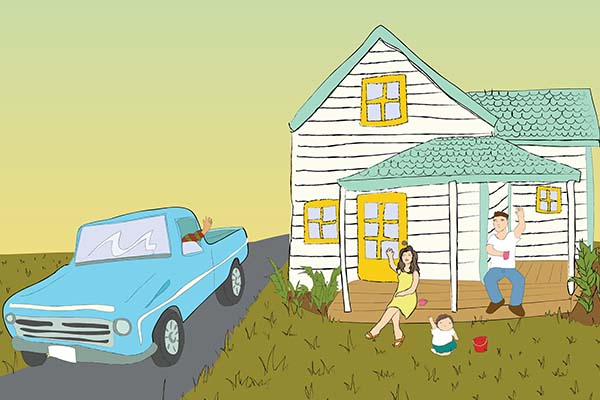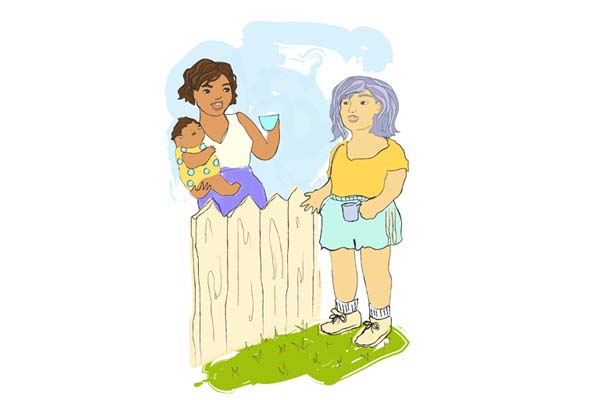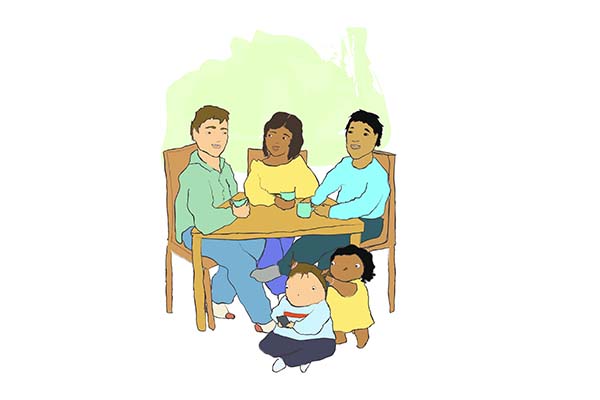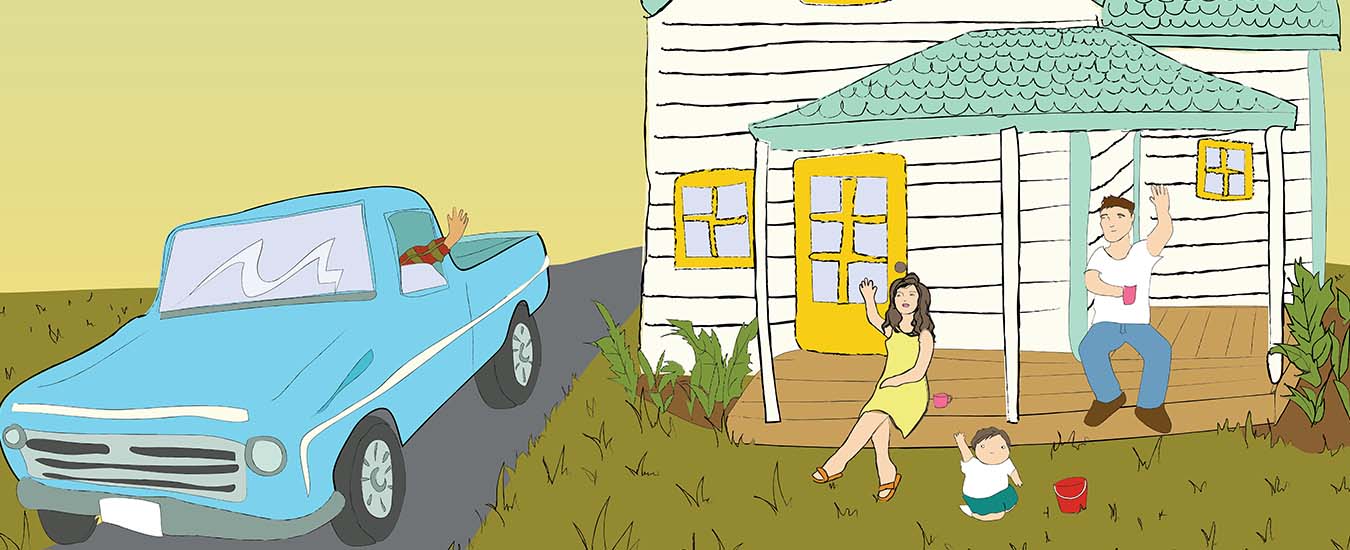The polite way rural folks converse is a delight and a lesson in subtle sociality
For the third time since leaving the dooryard I acknowledged a passing car and as I lifted my forefinger in salutation, my wife asked if I knew the driver? Well, actually I didn’t, but as any driver out in the country would do, I automatically waved without even looking up—certain that because they were on this road I likely knew them. Or their parents. Or maybe their cousins. And it got me to thinking about that wonderful country cordiality that those of us “out past the pavement” celebrate at every opportunity.
Country cordiality is like a good sourdough starter that never fails to work true, always pleasing with a warm slightly homey feel. Sentences are delightfully dusted with 100-year-old work words or terminology so area-specific that, unless you grew up hearing it, you are at a loss to explain it. The world of farm and forest has a long memory within us and our sentences still carry the sound of winter logging camps or spring drives.

When meeting a neighbour, a country person savours it with a pleasure no harried, hurried city folk ever know. A true country exchange will cover when you last met, the time of year and of course the all-important judgment that you look the same, delivered with an honest smile. No conversation is complete either without the jovial inquiry of your health. Now of course, this is not your personal health but that of every family member, beginning with the most senior—because the young ought to be in stellar health anyway. No kindness is equal to the asking after of one’s health and we should all be so lucky to have this concern for ourselves. Is it true interest? I think so; and keeping abreast of any outbreaks of ill health is always a topic worthy of discussion.
Once the niceties are over, the talk is easy with all parties passing along the news. Gossip among rural folk is frowned upon and considered poor manners, but the news is always welcome. But of all the country conversation pleasantness, nothing is more treasured than the parting where all agree to be sure to drop by or telephone sometime, delivered with a hug or an arm-wrenching handshake.
People unfamiliar with country life never fail to point out our endless meteorological discussions from the current conditions, last year this time and of course the outlook for the coming days. It is colossally silly to those who hold their devices close and simply check online. But where in that is the polite interest in the other person’s opinion? More importantly, how on earth could anyone find the weather not discussion worthy? We live by the weather; be it on the water or on the land, it is a stern mistress we must mind. Our vocabulary swirls with degrees of weather harshness, signs of weather or weather reckoning, all the result of living close to the natural world for generations, whether logging or farming or running down the coast to Cuba.

In one of my past employment incarnations, I spoke daily with folks on the telephone (a land line no less!) and every seaside merchant would begin the exchange with either “she’d be too rough for the boats” or the alternate “oh, it’s a fine day on the water, it is!” Only once the conditions were established was the conversation continued. That is the weather still holding sway from a time when bad weather meant rough work made even more dangerous.
There is a timeless foundation in our country voices and any exchange—be it on the doorstep of the Mercantile or out along a gravel road—is a celebration of shared heritage. Our grandfathers stopped much as we do, in likely the same places, too. Hauling over the horses, they would have climbed off the bobsleds filling their briars as they paused long and talked until empty of words and then were off. It still is wise to allow extra travel time in the country for someone will surely want to speak to you, and if out for a walk well, expect no end of friendly offers of a lift. But only after the driver good naturedly asks if that darn Oldsmobile finally gave up the ghost and left you, eh? My wife and I have about given up on after dinner walks along country roads, keeping to the woodlands where the gentle offer of assistance is
less likely.
The kindness of the country world comes out in countless ways and sometimes in unexpected places. I was broken down just outside of Brantville, NB one snowy day and under the truck grousing about the vehicles parentage when I heard voices. Scrambling out I was greeted by a dozen people all talking at once—sorely taxing my grasp of French. More than a little concerned about the possible outcome on that lonely country road I eventually explained in my poor French that I need a tow.

Now of course we all hear of the hazards of travel but would you believe that in 20 minutes I was seated in a warm kitchen being stuffed with assorted sweets, scalding tea and trying to answer questions, ask questions and laughing all the while? My generous country hosts explained the truck was being towed to a nearby gas station and I would be escorted there once the repairs were made tout de suite! It turned out my senior hosts were loggers, as I am and knew the country of the Shikatehaw and Monquart Streams. Could there be anything more country than using the land and the water to find a common point of reference? Such kindness and cordiality I swear I expected to be crowned Prince of the Realm and wed to the laughing daughters who kept my saucer filled with treats. We parted good and true friends with equal pledges to ask for help at any hour, should any ever be in distress.
Correctness, pronunciation and syntax never bother the rural speaker who gleefully winds words together in a manner sure to perplex and pester. For example any country dissertations up in my district revolves around the word “she” as the most common of verbal eccentricities. This had never registered until an Upper Canadian cousin of mine, after listening to a conversation with a fellow on a tractor, asked rather perplexed who “she” was and then explained every sentence the two of us had spoken mentioned “she” at some point. Such as “She’s nice today” or “She’ll improve over time” or “She’s getting along so I better go.” Who was this SHE? I about drove in the ditch laughing as he spoke. But after thinking it over it’s true most everything is explained, cursed or connected by “she.” Which makes sense, for who would refer to anything as he? That would be odd and totally out of place wouldn’t she?
We are traversing troubling times these days, and it has never been more crucial to have a stout foundation to hold onto as the chaos swirls around. Should it seem the pressures are insurmountable, take a moment and remember those calm country voices. Steady, patient and certain as the seasons that this too will pass.

